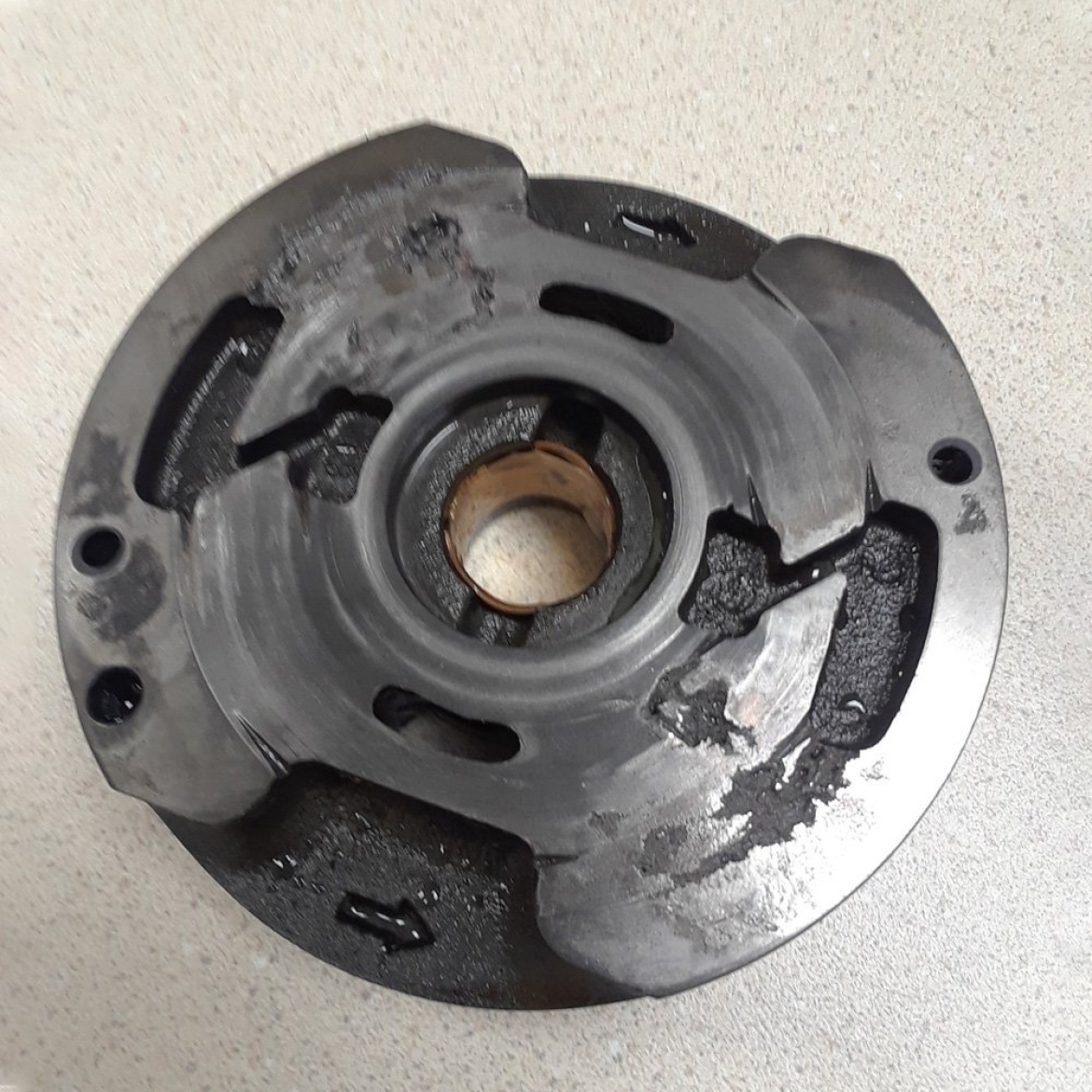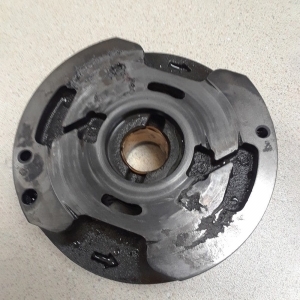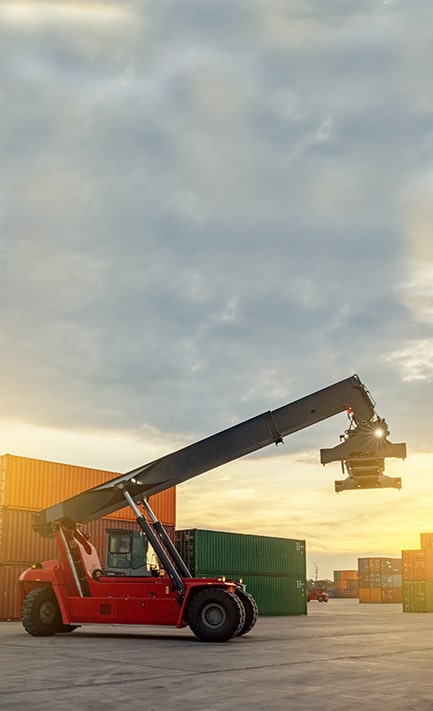What is Cavitation and Why Does it Happen?
Cavitation is a condition which destroys the effectiveness and efficiency of hydraulic pumps. The attached picture shows classic cavitation in a vane pump. The material of the port plate has literally been carried away downstream with the hydraulic fluid leaving a gap through which oil can leak from the pressure side back to the suction side on the port plate sealing surface. This obviously makes the pump ineffective and the only solution is to remove and replace the complete vane cartridge.
But what is cavitation and why does it happen?
Cavitation is the formation of air bubbles in a liquid, followed by their immediate and sudden collapse (implosion).
The root cause is a restriction in the pump suction line. The normally entrapped air in the fluid is pulled out by the increased vacuum, forming bubbles in the suction line. When the air is passed from the low pressure side to the high pressure side of the pump. The air bubbles collapse and implode under the pressure, causing tiny explosions and intense heat which damages the metal port plate, sometimes taking the metal to the melting point. This continuous condition produces a high pitched whining noise from the pump and over time, with it’s integrity compromised, the metal is removed away with the hydraulic fluid leaving an empty pocket on the port plate. The constant repetition of this makes the hole grow and at some point renders the pump ineffective.
Aeration of the fluid can also cause cavitation, but in addition to the high pitched whining, there is also a more erratic noise, like a grinding or rumble. Aeration can be caused by a leak on a suction line allowing air to enter or it can also enter externally, like a return line not below the surface of the oil in the reservoir. With aeration you can visually see foam in the oil and the reservoir.
Repairing the pump is not the total solution. Any restrictions, kinked suction hose, plugged suction strainer, or leaks in the suction line or system allowing air in. Need to be remedied or the service life of the pump will be dramatically shortened again. If you want to delve deeper into our expertise and offerings in hydraulic cylinder manufacturing, feel free to reach out, and we’ll be delighted to provide you with detailed insights and information.







